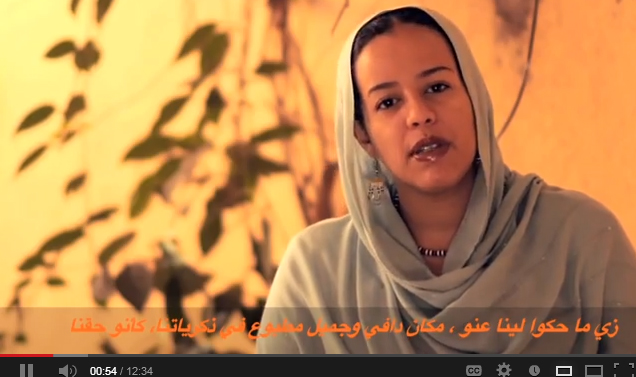
Against the backdrop of conflict, wars, and a jaded population in Sudan, a new wave of activism is emerging. Two YouTube videos released this past month take us on a journey to the youth’s envisioned “Sudan” or “Homeland.” The diversity of messaging in the videos has generated both positive and negative criticism, but most importantly, it has started an interesting conversation though which many themes have been revealed. Among these themes, we see a struggle for a united identity as a rift between Sudanese youth at home and in the diaspora. The need for regime change and a progressive mentality among youth has become a common thread in this new movement that seeks to inspire Sudanese youth to think differently about themselves and their future.
Last year, Tarig Hilal, a political scientist and democracy practitioner who currently works for Conflict Dynamics International in Sudan, presented his vision of a new Sudan at TEDx Khartoum. His vision portrayed the nostalgia for the Sudan of “our fathers” that our generation has been longing to recreate. His story was one of a Golden Age of “Jazz nights by the Nile…young men straight and proud, women wrapped in gold and finery…Khartoum University in its glory days where exams were marked in London.” His narrative was meant to fly its audience away from tumultuous grounds into clouds of nostalgic reveries marked by a “romance with the past”. While his story was critiqued for portraying an aristocratic class that existed before the late 80s, his words resonated with and inspired a great majority of youth in Sudan. “Our Sudan” is a short-film re-enacting his speech in English. It is an artistic, spoken-word version of his Sudan. The video has generated over 45,000 hits in just three weeks of its release on YouTube, indicative of its strong positive message.
The conversation sparked by Hilal’s reverie extended onto online forums and blogs. There have been conflicting realities among the youth that were made evident in the film. An anonymous contributor to the film says, “There’s a lot of resentment towards older generations, particularly our father’s generation, and as such a rejection of everything they lived. At the same time, you still have the diaspora that was breastfed that generation’s history and feels somehow connected to it.” Some bloggers have expressed their disdain for the film and its call to change Sudanese youth's mentalities towards positive thinking. Other bloggers have been fascinated by the “love poem” that Hilal has conveyed which offers a contrasting perspective from the dry and grotesque reality of a people displaced and killed every day.
Sudan Change Now also released a video, “Our Homeland”, that seeks to show another vision for Sudan. It cites the regime as the main roadblock of change and reform in the country. The video is an audiovisual collage of the voices of Sudan in their own words and dialect. Sudanese from different walks of life speak about why Sudan and the regime needs to change and explains that the only way Sudan can change is by revolution. This video seems to be less idealistic and more practical in its call for political change. While some believe that this video filled in the critiqued gaps of “Our Sudan”, it also generated criticism. Most recently, Nesrine Malik critiqued the video for its blatant call for bringing down the regime as the remedy to all ailments in Sudan and described it as an “aggressively political message.” Sudan Change Now responded by reiterating the fact that although the National Congress Party is not the sole reason why Sudan fails to progress, they have done little to find solutions to problems that existed before they came into power.
The conversation continues and this new wave of dialogue is a call to young minds. The critiques have stimulated free thinking and calls for youth to push for change—however it may come. Most importantly, the conversation highlights the struggle for peace, identity, and a prosperous Sudan. A movement has resurfaced and the youth continue to draw their own portraits of what a future Sudan could look like.
Photo: "Our Sudan" video still (Northenlightist)

